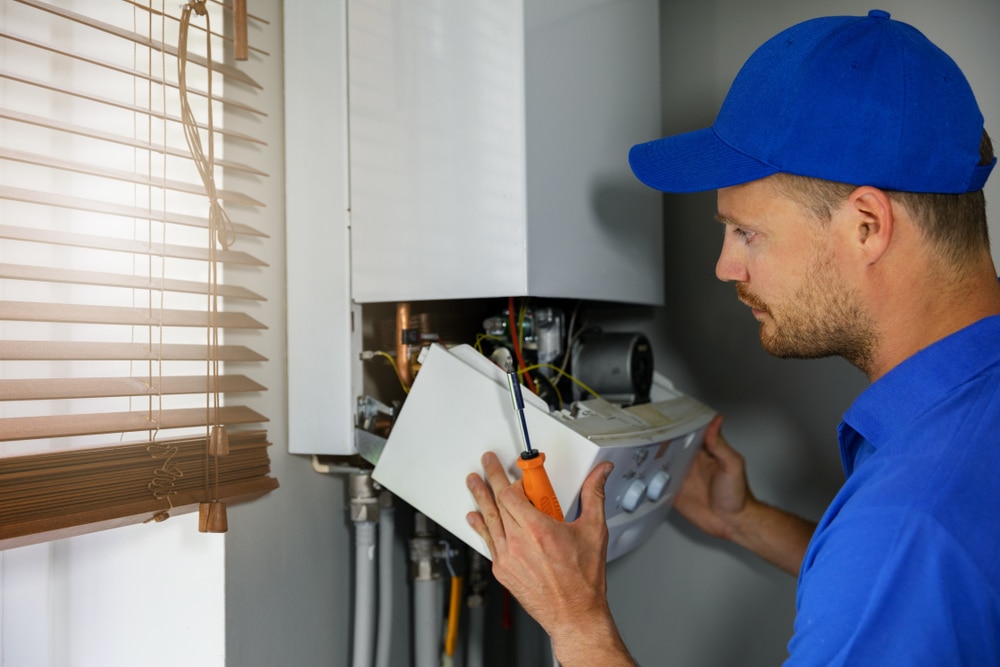Water heaters play a crucial role in modern life by providing us with hot water for showers, cooking, cleaning, and other daily activities. With that being said, it’s essential to properly maintain and troubleshoot any issues that may arise with your water heating system. Routine maintenance not only extends the lifespan of your water heater but also ensures its optimal performance, energy efficiency, and safety.
In this blog post, we will explore the significance of regular water heater maintenance, discuss warning signs that indicate maintenance needs, share essential tips for maintaining your system, offer guidance on troubleshooting common issues, and provide advice on when to call a professional plumber for water heater services.
By providing valuable information on these topics, our goal is to equip our readers with practical insights to maintain, troubleshoot, and extend the lifespan of their water heating systems. So, whether you own a residential or commercial property, this guide is designed to help you keep your water heater in top condition and avoid costly repairs or untimely replacements.
The Importance of Regular Water Heater Maintenance
Proper water heater maintenance is crucial for several reasons:
1. Prolonged Lifespan: Regular check-ups can help identify and resolve potential issues before they escalate, extending the life of your water heater.
2. Energy Efficiency: Routine maintenance ensures optimal performance, resulting in reduced energy consumption and lower utility bills.
3. Safety: Detecting problems early can prevent potential safety hazards, such as gas leaks or faulty pressure relief valves.
4. Minimized Disruptions: Addressing issues promptly reduces the chances of unexpected malfunctions, ensuring a continuous supply of hot water.
Signs Your Water Heater Needs Maintenance or Troubleshooting
Pay attention to these warning signs that indicate your water heater may require maintenance or troubleshooting:
1. Inadequate or fluctuating hot water supply
2. Unusual noises from the water heater
3. Cloudy or discolored water
4. Foul-smelling hot water
5. Leaks around the water heater
6. Rust or corrosion on the tank or its components
7. Dramatic increase in your energy bills
Essential Water Heater Maintenance Tips
Follow these essential maintenance tips to keep your water heater in top condition:
1. Inspect Regularly: Examine the water heater and its surroundings for leaks, corrosion, or unusual noises.
2. Drain and Flush the Tank: Remove sediment buildup by draining and flushing your water heater at least once a year.
3. Check the Pressure Relief Valve: Test the pressure relief valve annually to ensure it’s functioning correctly.
4. Temperature Control: Set the thermostat between 120-130°F (49-54°C) for optimal energy efficiency and safety.
5. Insulate the Pipes and Tank: Insulating your hot water pipes and heater tank can minimize heat loss and improve energy efficiency.
6. Replace the Anode Rod: Inspect and replace the anode rod every 3-5 years to prevent corrosion.
Troubleshooting Common Water Heater Problems
When facing issues with your water heater, follow these troubleshooting steps before calling a professional plumber:
1. No Hot Water: Check the power supply, circuit breaker, and thermostat settings. For gas heaters, examine the pilot light and gas valve.
2. Insufficient Hot Water: Adjust the thermostat, ensure the heating elements are functioning, or check for sediment buildup in the tank.
3. Water Too Hot: Adjust the thermostat settings or inspect the pressure relief valve.
4. Noisy Water Heater: Drain and flush the tank to remove sediment buildup. If noises persist, it could indicate a faulty heating element or pressure relief valve.
5. Cloudy or Discolored Water: Flush your water heater to clear sediment and consider installing a water filtration system to address water quality issues.
When to Call a Professional Plumber for Water Heater Services
While DIY maintenance and troubleshooting can help resolve minor issues, it’s essential to consult a professional plumber in the following situations:
1. Complex problems that require expertise and specialized tools, such as replacing heating elements or valves.
2. Recurring issues that might indicate underlying problems with your system.
3. Installation or replacement of a new water heater.
4. Situations posing a safety risk, such as gas leaks or electrical hazards.
Conclusion:
Regular water heater maintenance and timely troubleshooting can significantly improve the performance, energy efficiency, and longevity of your residential or commercial water heating system. By following the tips outlined in this comprehensive guide, you can keep your water heater in top condition, avoid costly repairs or replacements, and enjoy a reliable supply of hot water.
At New Pro Plumbing, our experienced team is dedicated to providing personalized and affordable commercial plumbing services in Los Angeles and the surrounding areas, including water heater maintenance, repair, and installation. To ensure your water heater receives the expert care it needs, contact us today for a professional consultation and assistance.
















